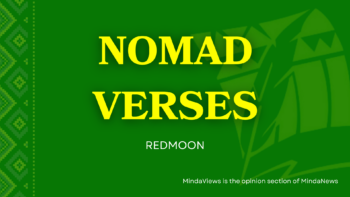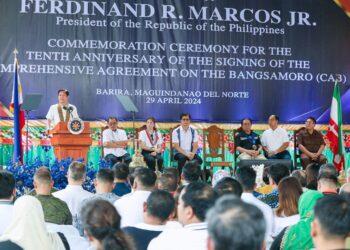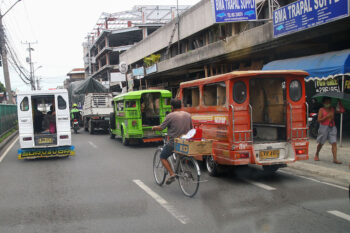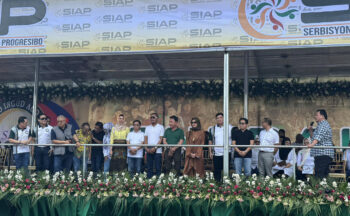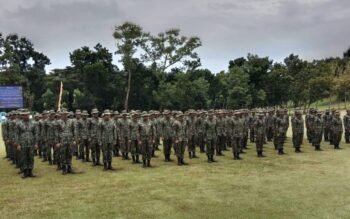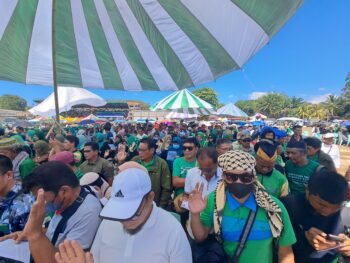
QUEZON CITY (MindaNews / 23 January) — The Bangsamoro Autonomous Region in Muslim Mindanao (BARMM) celebrated its 3rd foundation anniversary last Friday. With the pandemic surging due to the highly infectious Omicron variant, the BARMM government held a low key program. Chief Minister Ahod Ebrahim and Bangsamoro Transition Authority Speaker Pangalian Balindong delivered speeches extolling the achievements of the BARMM. The theme for this year’s celebration is “Changing People’s Lives, Transforming the Bangsamoro: Celebrating and Sustaining the Gains of Peace and Moral Governance.”
Undoubtedly, our peoples’ lives have been changed over the last three years. For one, COVID has definitely impacted the region negatively. If I were to choose only one measure of success (or failure), I would look into poverty. How has BARMM – the most conflict-affected, poorest region of the country – fared in lifting its citizens out of poverty?
The Philippine Statistical Authority, in its recent analysis of poverty incidence comparing 2018 and 2021 data, has this to say: “At the regional level, the regions with the lowest poverty incidence among families in the first semester of 2021 continued to be NCR and CALABARZON with 5.2 percent and 10.6 percent, respectively. On the other hand, ARMM/BARMM consistently figured with the highest poverty incidence among families at 39.4 percent in the first semester of 2021. Nine out of 17 regions posted significant changes in poverty incidence among families from first semester 2018 to first semester 2021. ARMM/BARMM had the highest significant improvement from 55.9 percent in first semester 2018 to 39.4 percent in the first semester of 2021.” (Highlights of the First Semester 2021 Official Poverty Statistics)
I offer my congratulations to the Regional Government, led by Chief Minister Ebrahim, for achieving this much with overwhelming obstacles. We need reminding, especially those who see the glass as half-full, that the past three years have not been easy. Leaders who were not experienced in the ways of a bureaucracy were to transform a regional government into a parliamentary system. That, by itself is no small job. Then COVID hit and the world froze. Economies suffered and family incomes dived, delivery of public services was curtailed. In the Philippines, we were forced to stay home in the longest lockdown implemented worldwide. In spite of the pandemic, government has to deliver services to its people. BARMM has managed to do that, as the PSA has noted.
Still, much has to be done to make the foundation of genuine autonomy strong. I am encouraged by the achievements of the BARMM regional government in addressing poverty. So, abangan!
Meanwhile, I invite you to listen to our latest episode on “She Talks Peace,” with Malaysian activists Carol Gomez and Shazeera Sazawi sharing their work on eliminating torture as a tool of control and healing the trauma.
Please Click, Play and Listen on Spotify:
Apple Podcasts:
Article 5 of the 1948 Universal Declaration of Human Rights prohibits torture: “No one shall be subjected to torture or to cruel, inhuman or degrading treatment or punishment.” This applies to prisoners of war, captured violent extremists or those arrested or detained for any crime (such as drug addicts). Torture is one of the worst abuses a State can commit against its citizens, causing not just immediate pain and loss but long-term impact on the victim and society as well. A society that tolerates torture is one where gross inequities exist, where a privileged class can accept inhuman treatment of those who are “less.”
Carol Gomez has been involved in violence against women, immigrant rights and social justice community organizing work for over two decades in the US and in Malaysia. From 2002-2012, she founded and directed the Trafficking Victims Outreach and Services (TVOS) Network, which was subsequently renamed “Matahari: Eye of the Day.” Shazeera Zawawi is the Senior Adviser for Research and Innovation at the Association for the Prevention of Torture (APT). I am also amazed to find out that she is an artist, who creates cartoons on the prevention of torture!
Those of us who were old enough to remember the pains inflicted on the Bangsamoro during the Martial Law years cannot ever forget – should never forget – the disappearances, murders and massacres, the tortures inflicted on suspects detained on mere suspicions of criminality or crimes of rebellion. Fortunately for us, the return of democracy with the administrations of the late President Corazon C. Aquino and Fidel V. Ramos also ushered in support for the strengthening of human rights protection. Civil society has flourished in the Philippines, creating a network that checks and balances whatever excessive zeal our government’s security sector may exhibit in protecting the state. Supporting the Universal Declaration of Human Rights, the Philippines is also a signatory to the United Nations Convention against Torture (UNCAT).
A concrete reminder that our own government did use torture against its citizens is Republic Act 10368, the “Human Rights Reparation and Recognition Act of 2013.’ Government has acknowledged its “legal and moral obligation for the gross human rights violations committed by the regime of former President Ferdinand E. Marcos during martial law from 21 September 1972 to 25 February 1986 and one month before and after the period,” according to the Philippine Commission on Human Rights. RA 10368 has recognized the suffering of those murdered or tortured or suffered loss – whether civil, political or economic – by providing reparation to the victims or their families whose human rights were violated. Ten billion pesos, which came from the recovered Marcos Swiss deposits, were provided for the reparations and for the establishment of a memorial museum.
In thus protecting our human rights and criminalizing torture, the Philippines is rather unique in South East Asia. Carol and Shazeera note that Malaysia has yet to ban torture. For instance, caning is still used as a legal punishment for criminal offences. Amnesty International (AI) estimates that as many as 10,000 people each year are caned in Malaysia. According to AI, there is training for officers on how to conduct caning.
Unfortunately, most Filipinos do not have memories of the Martial Law days. Most cannot imagine torture as an instrument of the government against criminality, rebellion or violent extremism. Carol and Shazeera remind us that torture exists, even in rich Malaysia. And let me remind all of us that torture can, in the dark of political night, once again become a measure to contain us. As BARMM celebrates its 3rd anniversary, I hope and pray that the protection of our human rights is at the core of our foundation for genuine autonomy and a just peace.
(MindaViews is the opinion section of MindaNews. Amina Rasul is the President of the Philippine Center for Islam and Democracy, an advocate for Mindanao and the Bangsamoro, peace, human rights and democracy)


